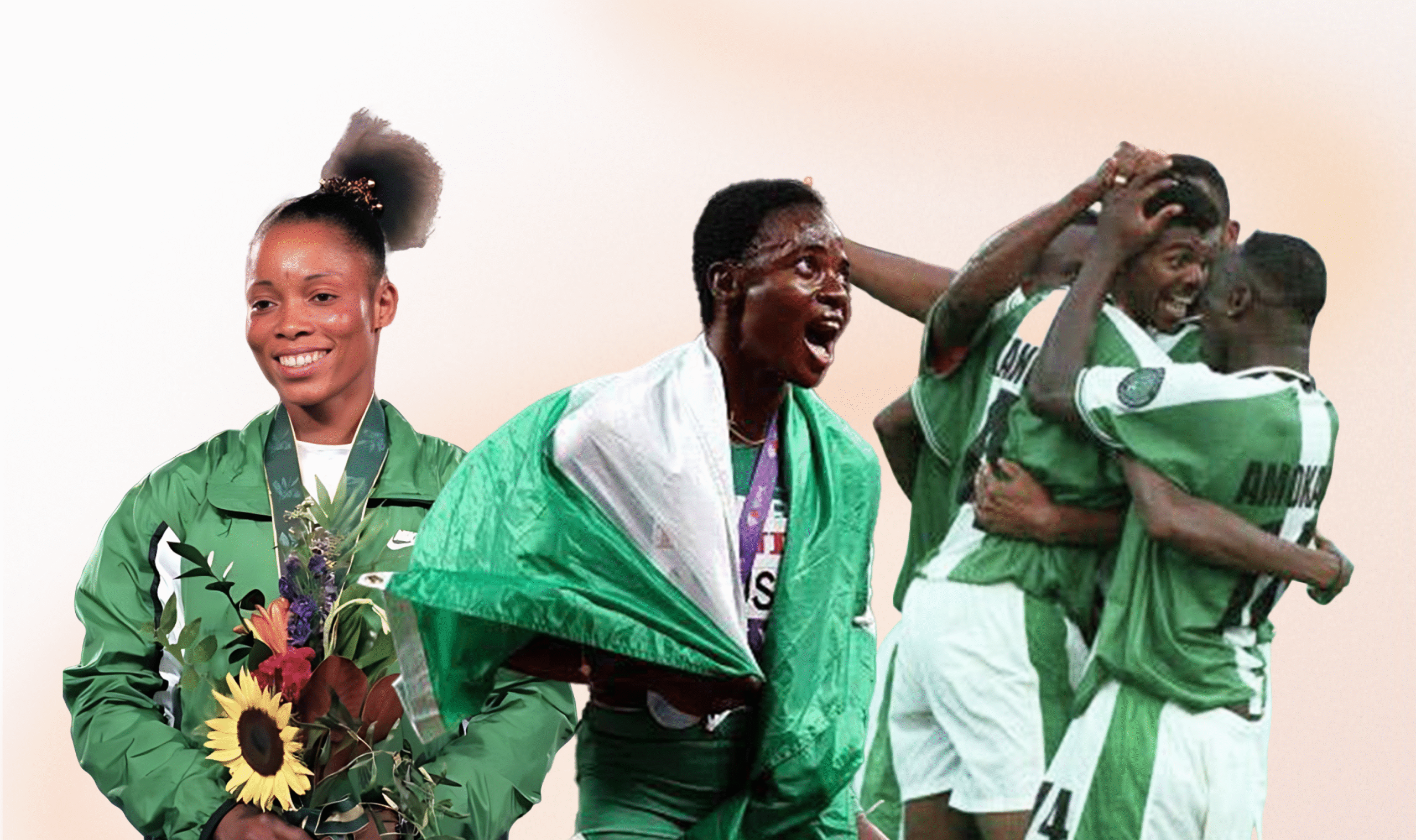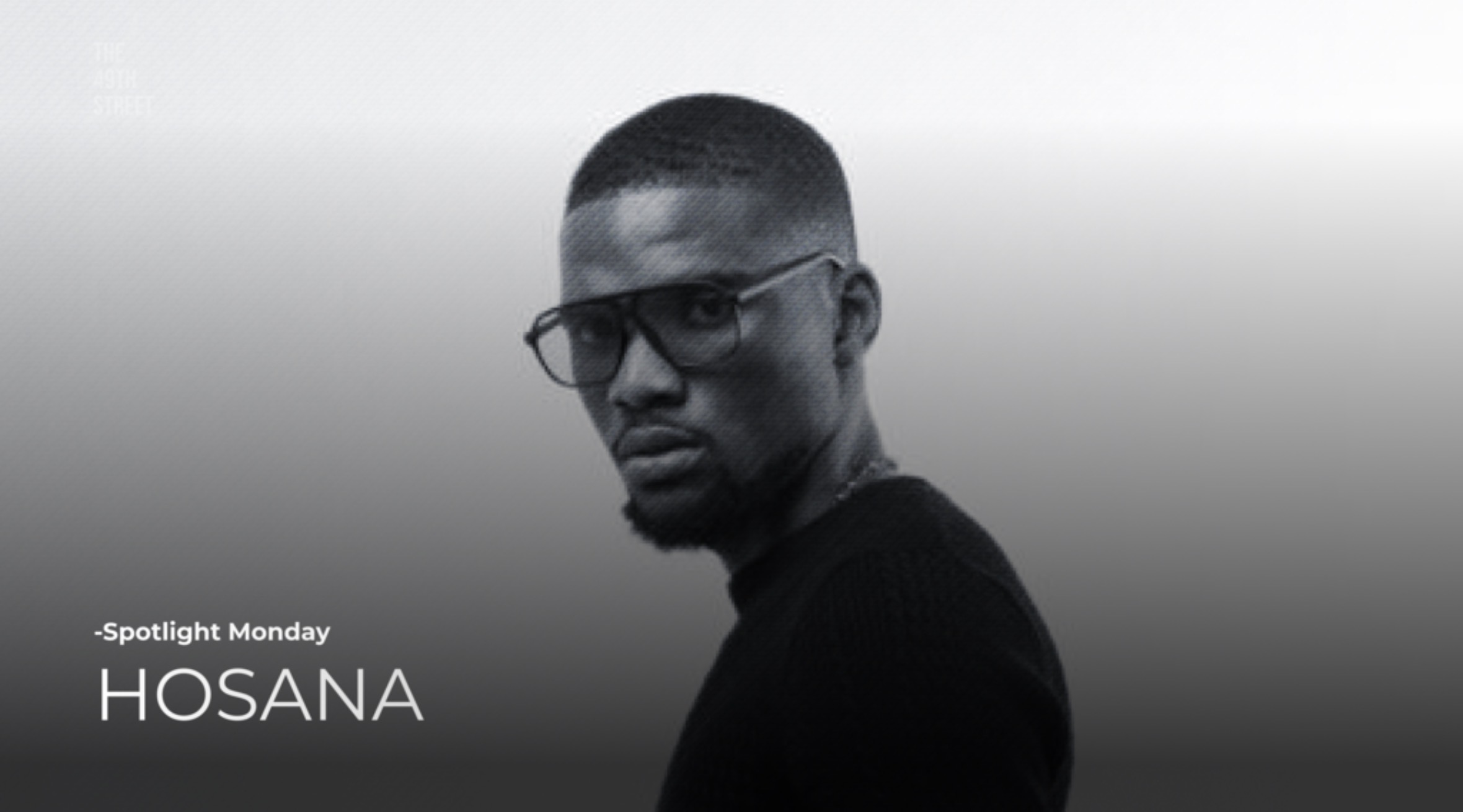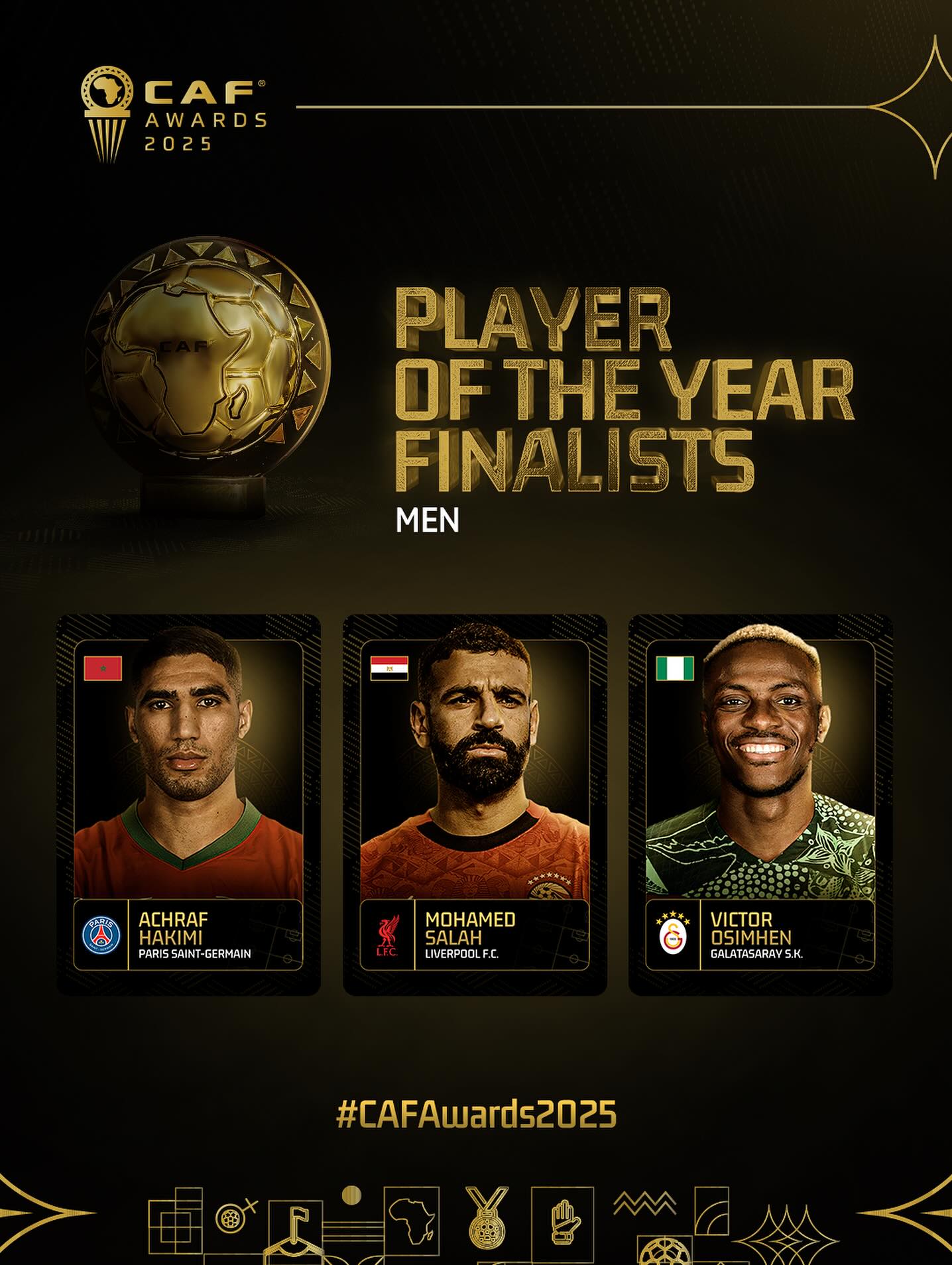By Johnson Opeisa
To a great degree, sport is about the memories. For the fans, their unwavering commitment to an institution or an athlete is rewarded in flashes or runs of brilliance that make for proud moments that linger years after. Nowhere is the feeling more wholesome than in national settings. The few times national competitions take centre stage, the atmosphere is pristine: geographic uniformity in fandom, a surge of national pride and identity, and cross-industry banter all coalescing into memories that link generations.
Taking a broader look across the sporting disciplines, The 49th Street revisits the 10 greatest Nigerian sports moments of all time. The country has never been short of them. Even amidst the ongoing troubling downturn in the country’s sports sector, the D’Tigress rallied from an early deficit against Mali to claim their fifth consecutive AfroBasket trophy on August 3, a few days after the Super Falcons delivered one of the greatest performances in women’s football by coming back from two goals down to snatch their 10th WAFCON title against hosts Morocco.
That said, inclusion on this list is not limited to exceptional individual or team performances or trophy triumphs. The selections are largely determined by a combination of no fewer than two of three main factors: the calibre of opponents at the time, the far-reaching effects of the moment on the country in general, and the pedigree of the stage on which it occurred.
Here, then, goes the 10 greatest Nigerian sports moments of all time.
10. D’Tigers vs Team USA — USA, 2021
A week before the commencement of the Tokyo 2020 Olympics, Nigeria’s D’Tigers shocked the world by defeating tournament favourites Team USA 90–87 before over 4,000 spectators at Mandalay Bay in Las Vegas. The pedigree of the US aside, D’Tigers, coached by then–Golden State Warriors assistant Mike Brown, had little standing against the Americans. Nigeria had seven NBA players who had combined for about 4,000 points, with zero All-Star or All-NBA selections. By contrast, the US players had combined for nearly 98,000 career points, with 32 All-Star selections and 21 All-NBA honours.
With previous defeats to the USA by over 80 and 40 points respectively, no one remotely expected the Americans to stumble. And while the fact that it was an exhibition game meant it was merely a tune-up for Team USA — who eventually went on to win the 2020 Olympic gold (their 16th overall and fourth consecutive) — for Nigeria, it was historic for many reasons. Notably, it ended a 25-game home winning streak for US teams with NBA players, and it marked the first time such an American team lost to a side from Africa.
The victory, alongside another against Argentina, boosted the attention and support for Nigeria’s basketball team heading into the Games, especially with the football teams not qualifying, even if they couldn’t leverage it to scale past the group stage in Tokyo.
9. Ahmed Musa’s Nigeria vs Iceland — Russia 2018 World Cup
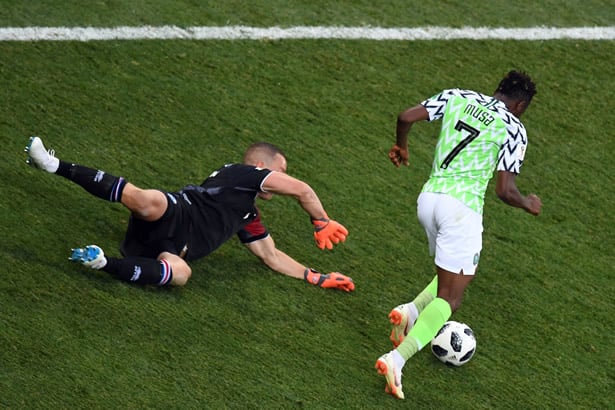
Ahmed Musa is unarguably Nigeria’s most prolific forward on the World Cup stage. He had already made his mark in 2014, scoring twice against Argentina in a game dominated by Lionel Messi. But it was his second-half brace against Iceland at the 2018 World Cup that became the defining moment of his legacy.
Musa’s thunderous half-volley fired Nigeria into the lead just after half-time, before he rounded the goalkeeper minutes later to seal the vital points. His brace at the now-demolished Volgograd Arena remains the most by any Nigerian in a single World Cup match — a record he first set in Brazil 2014 — and one that will forever stand as a landmark for Nigeria at the World Cup.
8. Nojim Maiyegun — Tokyo 1964

Without any doubt, Atlanta 1996 was Nigeria’s biggest moment on the Olympic stage. But some 32 years earlier, a 23-year-old Nojim Maiyegun had already delivered Nigeria’s watershed moment in the Games. Competing in the light-middleweight division, Maiyegun needed just one minute and 59 seconds in his opening fight to get past Britain’s William Robinson, before moving into the quarter-finals where he dispatched Denmark’s Tom Bogs in 58 seconds to assure Nigeria of its first-ever medal since making its Olympic debut in 1952 in Helsinki.
In a closely contested semifinal bout, Maiyegun lost to France’s Joseph Gonzales, but that defeat could not overshadow the late boxer’s Olympic performance in Nigeria’s history, as it culminated in the country’s first-ever Olympic medal: a bronze medal.
7. Richard “Dick Tiger” Ihetu’s World Title — Nigeria, 1963

Before Nigeria’s boxing profile came to be sustained by dual-nationality pugilists like Anthony Joshua and the precocious Moses Itauma today, the country had an undiluted presence in the mid-1900s, thanks largely to Dick Tiger and his infamous bout on home soil. The peak of his dominance was the trilogy of fights between the late Nigerian boxer and Gene Fullmer, then WBA middleweight champion, whom Tiger had first defeated to become Nigeria and Africa’s first-ever world boxing champion in 1962. The rematch in the US ended in a draw, after which a decider was agreed upon in Nigeria, in what was the first world title bout on the continent.
At the 35,000-capacity Liberty Stadium in Ibadan, the crowd was unmistakably Richard’s, and he rewarded them by subduing Fullmer after seven rounds, an emphatic victory that further strengthened national pride. “My mother and father could have been the judge and referee, and I couldn’t have won a round,” Fullmer, who retired immediately after the loss, was quoted by Peter Heller in his book In This Corner… !: Forty World Champions Tell Their Stories.
However, the Nigerian boxer would enjoy further glory, including a foray into the light-heavyweight division, culminating in a legendary career that saw him become the first African to be inducted into the International Boxing Hall of Fame in 1991.
6. Nigeria vs Morocco — WAFCON 2024, Morocco
It is barely two months since Nigeria’s Super Falcons came back from the precipice of defeat to clinch their 10th Women’s AFCON title against hosts Morocco in front of a partisan crowd in Rabat, but the recency does not make the feat any less significant. As far as the continental prize is concerned, the Super Falcons are unmatched, having already been the most successful side with nine titles prior to the 2024 edition.
However, considering the lingering reality of finishing the 2022 edition medal-less — the first time such happened — combined with the never-ending administrative shortcomings once again on display during the tournament and a largely unproven coach in Justin Madugu, the West African queens were given little chance as they embarked on the lofty #MissionX.
Though they finished their group stage unbeaten, their performances did little to dispel the doubts until the knockout rounds, where they brushed aside much-tipped Zambia (5–0) and eliminated 2022 champions South Africa (2–1). Being led by Jorge Vidal, Spain’s 2023World Cup winning coach, the Atlas Lionesses were widely tipped to outwit the Falcons, and they appeared set to justify the pre-match predictions when they struck twice in the opening 25 minutes at the Olympic Stadium in Rabat
But eventually, the second half stood as one of the greatest ever for a Nigerian side, as the Super Falcons rose spectacularly, with Esther Okoronkwo igniting the turnaround through a 71st-minute penalty before setting up Folashade Ijamilusi and Jennifer Echegini to complete one of the greatest comebacks in African football history. The victory sealed a record-extending continental crown for the Super Falcons and placed them on a global pedestal, surpassing the USA and China, who each hold nine continental titles in their respective confederations.
5. Nigeria vs Burkina Faso — AFCON 2013, South Africa
The 2013 AFCON was the Super Eagles’ third, and it ended an almost two-decade trophy drought. Considering that it remains the last time Nigeria’s senior men’s team has lifted a trophy, its significance cannot be overstated. The team, tactically helmed by the late Stephen Keshi and consisting of six local players out of the final 23-man squad, ran on unity and eventually inspired pride across the country. At the FNB Stadium in Johannesburg, all it took against Burkina Faso’s Stallions was a first-half momentary brilliance from Sunday Mba. Few would hurriedly forget how the then Enugu Rangers forward delicately flicked the ball over his marker before firing a left-footed shot into the far corner.
It was unarguably the most memorable moment for Nigeria in the 21st century, sealing the legendary status of many, none more than Keshi, who became only the second man to lift the AFCON trophy as both a player and coach after Egypt’s Mahmoud El Gohary.
4. Tobi Amusan’s World Record — Eugene, 2022
With back-to-back fourth-place finishes in her last two outings at the World Championships, 25-year-old Tobi Amusan entered the 2022 edition with hopes of breaking into the medal ranks. On July 24, 2022, the dream came true as Amusan’s 12.12 seconds etched her name into the track and field record books, bettering the previous world record set by American hurdler Kendra Harrison six years earlier by nearly a tenth of a second.
Amusan’s final burst two hours later earned her the gold medal in an even faster time of 12.06, although that did not count as an official record due to illegal wind speed. With her world record set at 12.12 seconds and Nigeria’s first-ever World Athletics gold around her neck, the world watched as a teary-eyed Amusan stood on the top step of the podium at Hayward Field while Nigeria’s national anthem played at the World Championships for the first time ever.
3. Nigeria vs Bulgaria — 1994 World Cup, USA
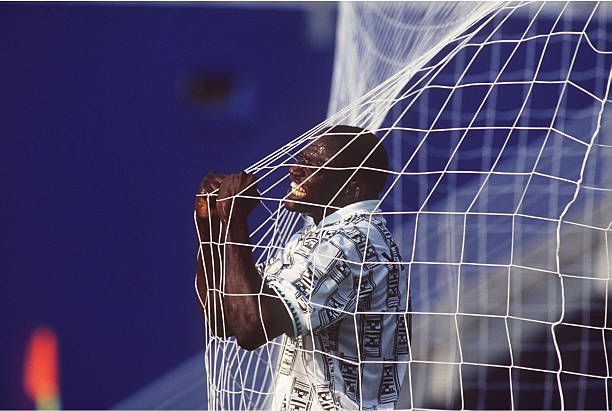
From their first unsuccessful attempt in 1970, it took Nigeria four more campaigns and 24 years to finally join the elite ranks of world football in 1994. A hard-fought 1-1 draw away to Algeria on October 8, 1993, sealed the country’s first berth at the World Cup, following earlier qualification victories against Côte d’Ivoire and the Desert Foxes. The celebration swept across the nation and reached a historic crescendo as the Super Eagles, coached by Clemens Westerhof and captained by Stephen Keshi, made their World Cup debut against Bulgaria on June 21, 1994, at the Cotton Bowl in Chicago.
Nigeria vs Bulgaria was already momentous before kick-off, but its place in history was sealed when Rashidi Yekini, set up by Finidi George, scored Nigeria’s first-ever World Cup goal in the 20th minute. Yekini’s unrestrained, net-gripping roar remains one of the defining images of Nigerian football. The historic moment was crowned with goals from Daniel Amokachi and Emmanuel Amuneke in a commanding 3-0 victory. The Super Eagles went on to top their group after beating Greece 2-0 and losing 2-1 to Argentina, before Roberto Baggio’s brace for Italy ended their run in the round of 16.
2. Chioma Ajunwa — Atlanta, 1996
The diminutive and multi-talented Chioma Ajunwa arrived at the Atlanta Olympics on the heels of a four-year doping ban that could have ended the career of many athletes. Having previously represented the Super Falcons at the inaugural FIFA Women’s World Cup in 1991 before turning her full focus to athletics, Ajunwa’s priority at the 1996 Games was the 100m.
After narrowly missing out in the final, the long jump became her only shot at glory in Atlanta, and she seized it with everything she had. She recorded a qualifying leap of 6.81m to place second and moved into the final, where the truly national-heroic moment came. Ajunwa soared to 7.12m to win the women’s long jump, becoming the first Black African woman to win Olympic gold in a field event. To date, Ajunwa, who later rose to the top ranks of policing in Nigeria after her athletics career, remains the country’s only individual Olympic gold medalist.
1. Nigeria vs Argentina — Atlanta 1996
While General Sani Abacha’s autocracy held sway in the mid-1990s, the Super Eagles delivered one of Africa’s greatest football moments on the global stage. The team was arguably Africa’s best at the time, parading players like Austin “Jay Jay” Okocha, Nwankwo Kanu, and Victor Ikpeba, who had won the country’s second African Cup of Nations two years earlier under Clemens Westerhof.
But the circumstances of heading to the Atlanta Olympics couldn’t have been more dire: a politically induced international suspension from the Commonwealth Games, boycott of the 1996 AFCON due to the same, and a national strain that saw some players cover some of the team’s expenses for the Olympics, as revealed by esteemed sports journalist Mumini Alao in his book The Making of Nigeria’s Dream Team.
It was a campaign logically out of reach, but the Jo Bonfrère-coached Dream Team negotiated their way into the quarter-finals as runners-up behind Brazil. They followed that with a 2-0 victory over Mexico before avenging their group stage loss against Ronaldo’s Brazil by coming back from two goals down to seal a final berth courtesy of Kanu’s extra-time winner in a 4-3 classic.
The final against an Argentine side that paraded some of the world’s brightest prospects at the time, including Claudio Lopez, Ariel Ortega, Javier Zanetti, and Diego Simeone, was no less dramatic. For over an hour at the Sanford Stadium, the Super Eagles trailed the Albiceleste before Daniel Amokachi’s decisive finish restored parity in the 74th minute, after which Emmanuel Amunike’s stoppage-time strike sealed it. The heart-thumping victory marked Nigeria’s first-ever gold in the Men’s Olympic Football Tournament, 96 years on from the tournament’s inception, providing a much-needed succour and a sense of national consciousness amidst the political tension at home.

